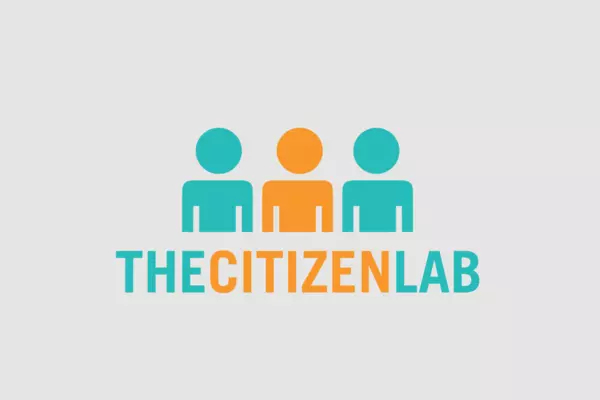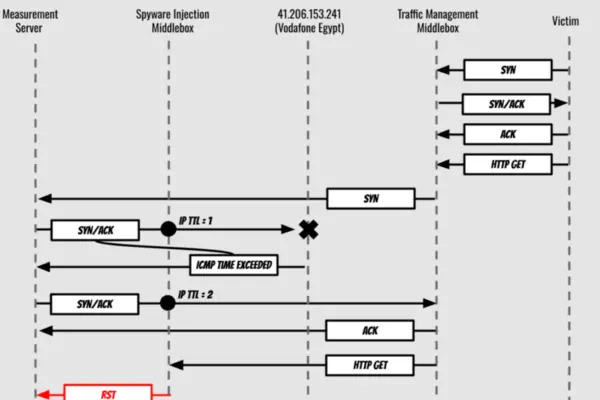Ron Deibert

Current affiliations
- Director, Citizen Lab
Areas of interest
- Health information systems (including surveillance)
- Cybersecurity policy
Biography
Ron Deibert, (OOnt, PhD, University of British Columbia) is Professor of Political Science, and Director of the Citizen Lab at the Munk School of Global Affairs & Public Policy, University of Toronto. The Citizen Lab is an interdisciplinary laboratory focusing on research, development, and high-level strategic policy and legal engagement at the intersection of information and communication technologies, human rights, and global security.
As Director of the Citizen Lab, Deibert has overseen and been a contributing author to more than 120 reports covering path breaking research on cyber espionage, commercial spyware, Internet censorship, and human rights. These reports include the landmark Tracking Ghostnet report (which uncovered an espionage operation that infiltrated the computer networks of hundreds of government offices, NGOs, and other organizations, including those of the Dalai Lama), China’s Great Cannon (an offensive tool used to hijack digital traffic through Distributed Denial of Service attacks), the Kingdom Came to Canada (an investigation of a Canadian permanent resident, Saudi dissident, and Khashoggi colleague who was targeted with commercial spyware), and the Reckless Series (an investigation into the abuse of commercial spyware to target journalists, anti-corruption advocates, and public health officials in Mexico). These reports have been cited widely in global media, garnering 25 front page exclusives in the New York Times, Washington Post, and other leading outlets, and have been cited by policymakers, academics, and civil society as foundational to the understanding of digital technologies, human rights, and global security.
Deibert was a co-founder and a principal investigator of the OpenNet Initiative (2003-2014) and Information Warfare Monitor (2003-2012) projects. Deibert was one of the founders and (former) VP of global policy and outreach for Psiphon, one of the world’s leading digital censorship circumvention services.
He is a co-editor of three major volumes with MIT Press: Access Denied: The Practice and Policy of Internet Filtering (2008), Access Controlled: The Shaping of Power, Rights, and Rule in Cyberspace (2010), and Access Contested: Security, Identity, and Resistance in Asian Cyberspace (2011). He is the author of Parchment, Printing, and Hypermedia: Communications in World Order Transformation (New York: Columbia University Press, 1997), Black Code: Surveillance, Privacy and the Dark Side of Cyberspace (Signal/McClelland & Stewart/Random House, 2013), and RESET: Reclaiming the Internet for Civil Society (House of Anansi Press, 2020 / September Publishing, UK), which was delivered as part of the 2020 Massey Lecture series and won the 2021 Shaughnessy Cohen Prize for Political Writing.
Deibert presently serves on the editorial boards of the journals International Political Sociology, Explorations in Media Ecology, Review of Policy Research, Journal of Global Security Studies, and Astropolitics. He has served on the advisory boards of Access Now, Privacy International, the technical advisory groups of Amnesty International and Human Rights Watch, and is currently on the advisory boards of PEN Canada and the Design4Democracy Coalition, and the Steering Committee of the World Movement for Democracy.
Deibert was awarded the University of Toronto’s Outstanding Teaching Award (2002), the Northrop Frye Distinguished Teaching and Research Award (2002), the Carolyn Tuohy Award for Public Policy (2010), and the President’s Impact Award (2017). He was a Ford Foundation research scholar of information and communication technologies (2002-2004). He was named among Esquire Magazine’s “Best and Brightest List” of 2007, listed among SC Magazine’s 2010 top “IT Security Luminaries”, and in 2017 named one of the top “Humans of the Year” by VICE. Foreign Policy magazine named Deibert to its 2017 “Global (Re)Thinkers” list.
In recognition of his own work or that of the Citizen Lab, he has been awarded the Electronic Frontier Foundation Pioneer Award (2015), the Neil Postman Award for Career Achievement in Public Intellectual Activity (2014), the Advancement of Intellectual Freedom in Canada Award from the Canadian Library Association (2014), and the Canadian Journalists for Free Expression Vox Libera Award (2010). In 2019, he received an honorary Doctor of Laws from the University of Guelph. In 2020, he was awarded two ISA (International Studies Association) awards: the ISA Canada Distinguished Scholar award and the STAIR Distinguished Scholar ‘Transversal Acts’ award.
In 2013, he was appointed to the Order of Ontario and awarded the Queen Elizabeth II Diamond Jubilee medal, for being “among the first to recognize and take measures to mitigate growing threats to communications rights, openness and security worldwide.”







